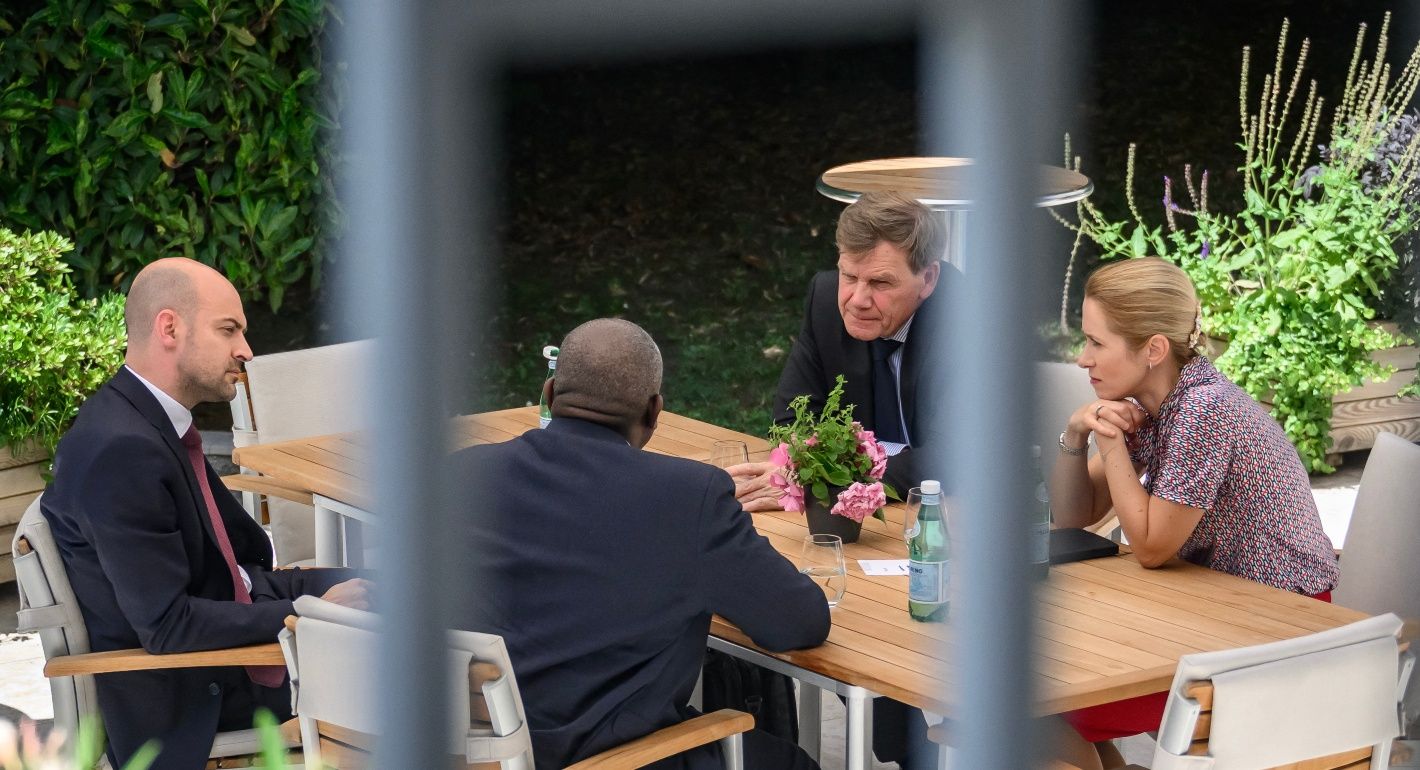Instead of delivering a decisive resolution to a long-standing regional problem, the U.S. strikes on Iran’s nuclear facilities on June 22 were inconclusive. There seems to be broad agreement on the extensive damage done to the facilities and Tehran’s short-term enrichment abilities. But the longer-term impacts are less clear.
For decades, a potential U.S. strike has been shrouded in the deterrent halo of obliteration. Now, however, the absence of clear evidence that the operation eradicated Iran’s nuclear program—and Tehran’s refusal to renounce its ambition of nuclear enrichment for military purposes—is a problem for the United States, Europe, and the Middle East as well as those who banked on U.S. deterrence or believed in nonproliferation.
Nevertheless, the strikes did weaken the Iranian system’s military capabilities. There is now a short window for effective diplomacy to transform the U.S. intervention into a turning point in resolving one of the region’s most enduring threats. For that, the United States would be wise to leverage Europe’s hawkish posture; team up with France, Germany, and the UK (the E3); and involve Arab partners, China, and Russia.
The difficulty for Europeans is in proving their usefulness to the administration of U.S. President Donald Trump, which has dominated them with its unorthodox, brutal, and unpredictable approach. The Europeans must earn their place at the table with Iran and Israel, too.
Despite their geopolitical impotence on Ukraine and Gaza, Europeans could be helpful on three central aspects: restoring inspections of Iranian nuclear facilities, influencing Tehran’s long-term calculus, and helping get a broader agreement that reduces the Israeli government’s pretexts to resume the war.
In a slightly counterintuitive twist, the E3 are now the hawks on Iran. While the Trump administration seems to be reproducing the tunnel vision of former U.S. president Barack Obama on the nuclear program, the Europeans—chief among them, France—are pushing for a wider set of controls. These would not only end Iran’s ability to develop military nuclear capabilities but also constrain its capacity to rebuild its ballistic missile program and support terrorist militias across the Middle East. This approach gives the Europeans credibility with both Israel and Arab governments in the region.
In addition, at least two components of Iran’s capabilities remain in play: the unknown fate of the country’s highly enriched uranium, and the Iranian system’s motivation for developing nuclear weapons.
The Joint Comprehensive Plan of Action (JCPOA) between the E3, China, Russia, and Iran—for all its shortcomings and Tehran’s violations—is the only mechanism that provides for inspections and access to Iran’s nuclear program. By remaining part of the accord, the E3 have leverage that could help the United States, which left the deal in 2018 during Trump’s first presidency.
Given the uncertainty around Iran’s nuclear materials, this is a pressing time to restore inspections. These cannot be replaced by spycraft, regardless of how extensive Israeli and U.S. infiltration is. Unlike spycraft, which in this instance is designed to enable military targeting, inspections provide a mechanism to prevent a fully clandestine nuclear program—to the extent possible short of another war.
France, Germany, and the UK are also gearing up to trigger the so-called snapback process of reimposing sanctions on Iran under the JCPOA. Israel, which is usually dismissive of these diplomatic tools, has expressed its enthusiasm for the snapback mechanism. This stance might be an implicit recognition of the limits of Israel’s military approach in clinching a long-term solution, even if Israel continues to brandish the threat of renewed strikes. Here, Iran will need to engage with the Europeans. While U.S. sanctions are more potent, reinstating European measures is an additional pressure point that the United States would benefit from leveraging.
The Trump administration stands to gain from cooperating with its European counterparts, even if it remains the undisputed lead in the process. Since the 2020 Abraham Accords, which established a diplomatic normalization between Israel and several Arab states, the U.S. approach to the Middle East has suffered from an enduring vulnerability. Washington has largely ignored the ideological and historic motives of the region’s spoilers, believing it can resolve multigenerational conflicts with the prospect of economic prosperity. Once again, the United States is signaling it intends to pursue the same approach.
The October 7, 2023, attacks by Hamas against Israel showed that historic grievances and ideology are still powerful drivers. Both the Iranian and the Israeli leaderships have also become more ideologically radical and messianic. It is unlikely that either side will simply trade in its posture anytime soon. This intransigence could derail one of Trump’s landmark policies in the region. The E3 could provide helpful technical and political input to avoid that scenario.
Where both the United States and Europe face an uphill battle is in convincing Tehran that pursuing nuclear weapons is not its only path to restoring its deterrence and security. U.S. and European self-deterrence in Ukraine was a direct result of Russia’s nuclear arsenal; meanwhile, no such considerations were factored in to American and European support for Israel in its confrontation with Iran, cementing the supremacy of nuclear deterrence. That distinction is not lost on the various factions in the Iranian system.
What is more, the inconclusiveness of the June 22 operation and the Israeli prime minister’s ability to set its timing may have eroded the deterrent value of future U.S. strikes. The next round, if it happens, will necessarily have to be harder and deadlier—which will awaken the ghost of mission creep from the U.S. interventions in Afghanistan and Iraq in the early 2000s. Trump has signaled his willingness to use military instruments for one-off operations, but he is also loath to engage in a full-fledged war. This position could end up backfiring.
The window to steer Iran away from the nuclear race risks narrowing rapidly. Proving that the United States can truly rein in Israel and compelling Iran with a multinational diplomatic approach, in which the Europeans play a major supporting role, will be crucial to avoid further ensnarling the region.




